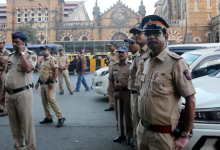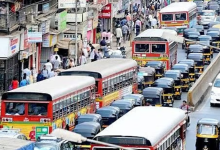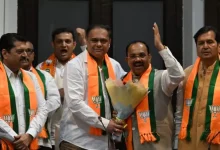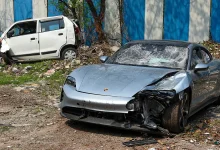Maharashtra COVID Cases Cross 500 Mark With Mild Symptoms

Mumbai: Maharashtra has witnessed its active COVID-19 caseload surpass the 500 threshold, with health officials recording 86 fresh infections on Tuesday. Mumbai led the daily count with 26 new cases, while Pune contributed 24 cases to the state’s tally. Thane district reported nine cases, and Navi Mumbai added six more infections.
The state health department confirmed that Maharashtra now has 510 active COVID-19 cases across its regions.
Mumbai’s case trajectory shows significant activity since January 2025, with 509 total cases recorded. The health department’s official statement reveals that 503 of these cases emerged during May alone.
The state has documented two additional fatalities, bringing the overall death count to 14. According to health department data, 13 of the deceased patients had underlying health conditions including diabetes, hypertension, cancer, interstitial lung disease, chronic bronchitis, and cardiovascular complications.
While the statistics indicate a notable surge in COVID infections, health authorities emphasize that symptoms remain mild and urge the public to avoid panic. The health department noted that this pattern of scattered COVID increases is not unique to Maharashtra, appearing in other Indian states and international locations as well.
Responding to the climbing case numbers, the state health department issued guidance on Monday to civic officials and district collectors throughout Maharashtra. The advisory covers protocols for COVID-19 patient management, isolation bed arrangements, medical oxygen supplies, and personal protective equipment distribution.
Addressing Mumbai’s COVID situation, BMC Executive Health Officer Daksha Shah confirmed adequate preparation of hospital beds, testing capabilities, and treatment infrastructure. “We maintain compliance with all governmental directives, including daily reporting requirements. Despite May’s sudden increase, patients are experiencing mild symptoms,” Shah stated.
Shah recommended basic preventive measures for residents, including mask usage when necessary (though not mandatory), regular hand hygiene, and heightened caution for individuals with underlying conditions such as diabetes, hypertension, asthma, and elderly citizens.
During a recent media interaction in Chennai, former World Health Organization chief scientist Dr. Soumya Swaminathan attributed the current COVID-19 surge to Omicron sub-variants. She explained that while the virus has undergone mutations, the fundamental strain remains unchanged. “The immunity developed over recent years means COVID-19 should not cause fear,” Dr. Swaminathan remarked.
When questioned about potential new COVID-19 variants, Dr. Shah indicated that authorities have not received notification of any novel sub-variants.
Medical practitioners treating patients daily offer different perspectives. Dr. Manish Deliwala, a general physician practicing in Chembur, suggested the likelihood of a sub-variant based on patient presentations, mild symptoms including low-grade fever and body aches, and recovery patterns. “Patients seeking immediate medical attention typically recover within three to four days, though those with comorbidities may require additional time,” Dr. Deliwala explained.
Dr. Deliwala also cautioned against self-medication, noting that monsoon-related ailments with similar symptoms to COVID such as fever, cold, and cough are simultaneously increasing.
Dr. Akshay Dongardive, serving as National President for FAIMA and President of BMC MARD at Nair hospital, reported that resident doctors have not received specialized guidelines for the current situation. He highlighted BMC’s initiative to establish Evening Fever OPDs at major hospitals to address increased patient volumes, noting that monsoon illness symptoms mirror COVID symptoms, making professional medical consultation essential rather than self-treatment.
The BMC plans to launch Evening Fever OPD services this month at four primary hospitals—KEM, Sion, and Cooper while Nair hospital has already activated these services. These evening clinics aim to manage the heightened patient demand during monsoon season.




